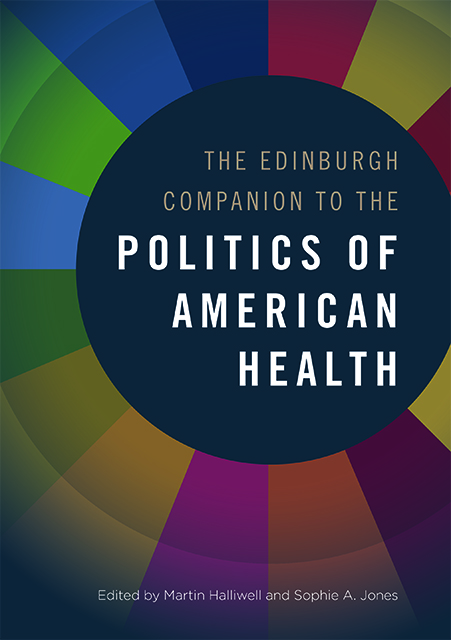Book contents
- Frontmatter
- List of Contents
- Notes on Contributors
- Introduction: The Political Landscapes of American Health, 1945–2020
- I Geography, Community and American Health
- II Critical Health Conditions: Debates and Histories
- III The Politics of Children's Health
- IV The Institutional Matrix of Health Care
- V The White House, Congress and Health Reform
- VI Justice, Ethics and American Health
- VII Public Health and Global Health
- General Bibliography
- Index
II - Critical Health Conditions: Debates and Histories
Published online by Cambridge University Press: 12 August 2023
- Frontmatter
- List of Contents
- Notes on Contributors
- Introduction: The Political Landscapes of American Health, 1945–2020
- I Geography, Community and American Health
- II Critical Health Conditions: Debates and Histories
- III The Politics of Children's Health
- IV The Institutional Matrix of Health Care
- V The White House, Congress and Health Reform
- VI Justice, Ethics and American Health
- VII Public Health and Global Health
- General Bibliography
- Index
Summary
In a March 2021 essay on the Covid-19 crisis and ‘crip time’, the literary theorist Elizabeth Freeman suggests that the pandemic had expanded to the masses the distinctive, non-normative experiences of time engendered by disability and chronic illness. For Freeman, crip time describes not only foreshortened lifespans or the ‘lost time’ in everyday experiences of disability, but also forms of transhistorical solidarity. Freeman writes:
Most broadly, crips can experience even historical time as heterogeneous by connecting to other collective moments, such as the Spanish flu pandemic or the early AIDS era. With this connection, we feel solidarity with those who perished and those who survived, adopting and modifying some of their techniques for taking care of one another or making it through – as when we follow AIDS safe sex ethics to advocate for harm reduction and risk calculation in balancing COVID transmission with the human need for sociability. These are the moves that bend time, deploying the seeming losses of the past for a better future – not the future of a surefire cure, but the future of care and collective accountability.
Freeman's essay exemplifies the political value of analysing health conditions in historical perspective and of drawing attention to the social and cultural dimensions of illness across space and time. If government responses to the Covid-19 pandemic have often seemed to naturalize the connections between chronic illness or disability and isolation, this vision of ‘crip time’ emphasizes the inescapable collectivity of illness. As such, it is an apposite way to introduce the five essays in this section, which all work to unveil the social and political worlds that shape definitions and experiences of critical health conditions, moving beyond the disease conception of illness by attending to the material contexts that are often rendered invisible by the focus on the individual patient in discourses of critical health. Whether looking at the twentieth-century epidemics of polio and AIDS, the emergence of ‘obesity’ and major depressive disorder as contested diagnoses or the production of cancer under capitalism, these chapters open up the various economic, cultural, industrial, legal and emotional forces that shape the politics of critical health conditions.
In the first chapter of this section, Stephen Mawdsley tracks the history of anti-vaccination attitudes during the polio epidemics of the twentieth century.
- Type
- Chapter
- Information
- The Edinburgh Companion to the Politics of American Health , pp. 101 - 104Publisher: Edinburgh University PressPrint publication year: 2022



